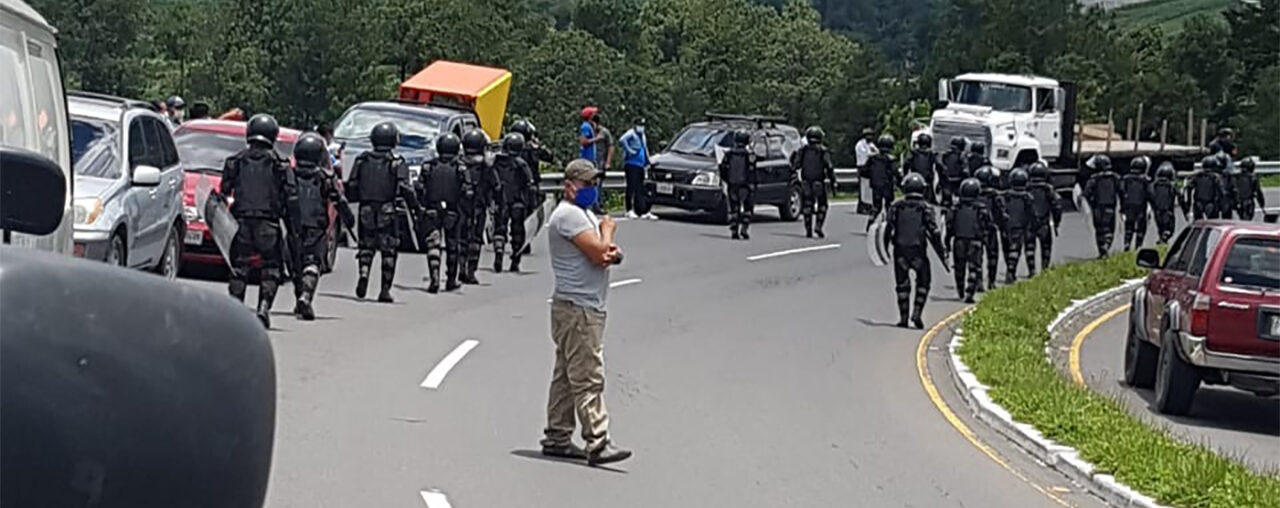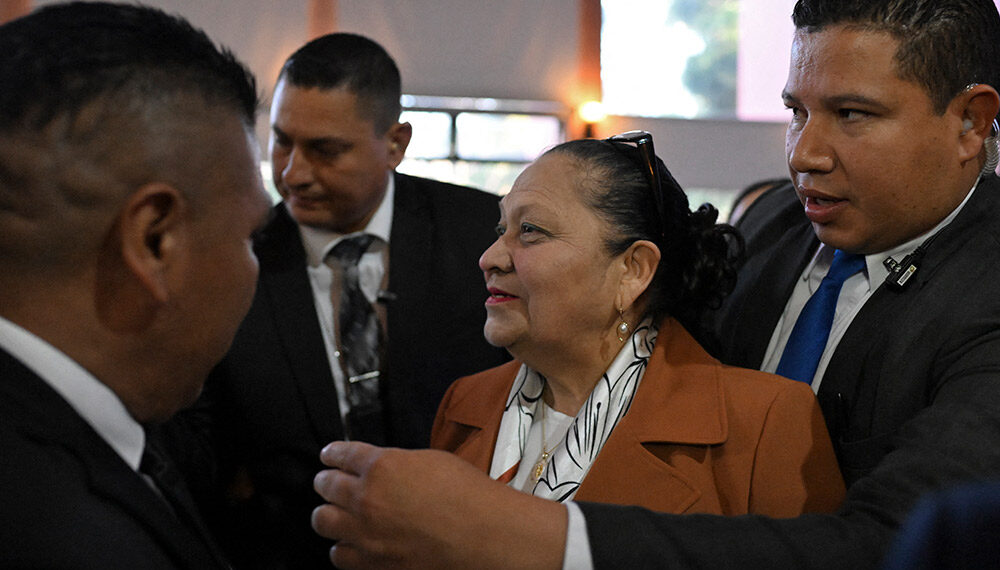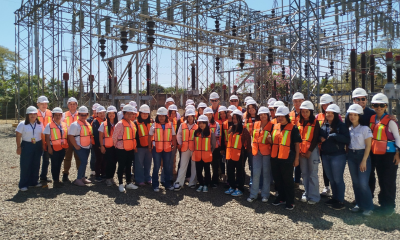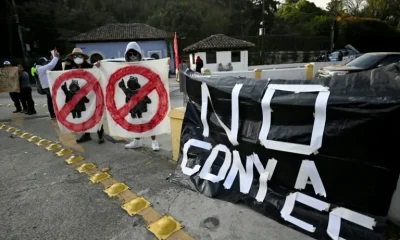Central America
Talks planned to end 100-year Guatemala indigenous dispute

AFP
Hundreds of indigenous people lifted their blockage of a major road in Guatemala on Tuesday after an agreement was reached for talks to resolve a bloody century-old land dispute.
On Monday, members of the Mayan K’iche group had blocked the Interamericana highway with the caskets of 11 of the 13 victims of a weekend massacre in which four children aged between five and 16 were alleged killed with machetes.
The roadblock was lifted after an agreement among residents who had traveled to Guatemala City to meet government officials to try to start talks over a legal border between two rival communities.
“A dialogue will begin in the first half of January, where the issue of the border will be discussed,” said Mateo Tzep, 42, a community leader from Santa Catarina Ixtahuacan municipality that is in conflict with the neighboring Nahuala.
Although both communities are K’iche, they have been fighting over land — at times violently — for more than 100 years.
On Friday night, armed men with “high caliber” weapons ambushed a group of people from Santa Catarina Ixtahuacan who went to the village of Chiquix in Nahuala to pick corn.
The children were cut into pieces and the victims were then burnt inside the truck they were traveling in. A police vehicle was also attacked, leaving one officer dead and two injured.
The Santa Catarina Ixtahuacan community claims those in Nahuala have stolen some of their land.
On Monday, President Alejandro Giammattei declared a month-long state of siege in the two communities, which means demonstrations and the right to carry weapons are banned.
“These events are no longer the product of an ancestral land conflict. They are the direct consequence of an illegal armed and organized group that acted against civilians and security forces through an ambush,” said Giammattei.
He vowed to bring the perpetrators to justice.
Three men carrying M16 rifles were arrested on Sunday. Authorities said they would carry out forensic tests on the weapons to see if they were used in the massacre.
Protesters had blocked the Interamaericana — one of Guatemala’s main highways, which links the capital to the west — with tires, tree trunks, rocks and concrete blocks.
“We don’t want any more deaths, we don’t want any more violence. We are looking for peace and justice,” said a man at the roadblock who identified himself only as Diego.
Indigenous people, many living in poverty, make up more than 40 percent of Guatemala’s almost 17 million population, according to official statistics.
Central America
Guatemala’s Attorney General Consuelo Porras Loses Bid for Constitutional Court Seat

Guatemala’s attorney general, Consuelo Porras, who has been sanctioned by the United States over corruption allegations, lost a key vote on Monday in which a public university selected two of the 10 magistrates for the country’s highest constitutional court. However, she could still seek a seat through another nominating body.
The election of five full magistrates and five alternates to the Corte de Constitucionalidad (CC) is taking place gradually over more than two months and is considered crucial in the ongoing struggle for control of Guatemala’s judiciary, which critics say has long been influenced by a political and economic elite accused of corruption.
According to results announced at a press conference, the governing council of the Universidad de San Carlos de Guatemala (USAC) rejected Porras, who had applied as either a full or alternate magistrate, and instead chose two candidates aligned with the university rector. The vote was held at a hotel in Antigua, about 35 kilometers from the capital.
Despite the setback, Porras — whose term as attorney general ends on May 16 — could still be nominated to the Constitutional Court by the Corte Suprema de Justicia, which appoints two magistrates. The remaining six are selected by the president, the bar association and Congress.
“It’s always a possibility,” the 72-year-old lawyer said days earlier when asked by reporters whether she would seek nomination through another institution if she lost the USAC vote.
Porras has been sanctioned by Washington and the European Union for allegedly attempting two years ago to block the inauguration of President Bernardo Arévalo and for pursuing legal actions against anti-corruption prosecutors, judges, journalists and social leaders since taking office in 2018.
The USAC vote was controversial because most members of the university’s governing council are serving beyond the expiration of their terms. Students, academics and social activists staged protests against Porras’ candidacy.
Central America
Teens visit ETESAL substation to learn about responsible energy use

Within the framework of World Energy Day, teenagers from the institutional care center Ciudad Niñez y Adolescencia (CNA), run by the Consejo Nacional de la Primera Infancia, Niñez y Adolescencia (Conapina), took part in an educational visit to a substation operated by Empresa Transmisora de El Salvador (ETESAL) in Santa Ana.
The aim of the activity was to give participants first-hand knowledge of how the country’s electricity transmission system works and to highlight the importance of responsible energy use.
During the tour, the group learned about the process that delivers electricity to homes, businesses, and industries. They were also introduced to specialized technical equipment and the safety measures required to ensure an efficient and reliable service.
Before the guided visit, the teenagers attended two informative talks and an environmental awareness session focused on the relevance of responsible energy consumption and its impact on the environment.
According to Nelson Menjívar, head of Conapina’s programs unit, the initiative serves a dual purpose. “It has two objectives: a recreational component and an educational one, so that adolescents can learn about the work carried out by ETESAL and how some of the resources they use at home are generated. This is in keeping with the guarantees established under the Crecer Juntos law; we ensure those rights for children,” he said.
Menjívar stressed that these activities help young people better understand how essential services function in their daily lives while promoting efficient consumption habits and a culture of environmental respect and care.
The event is part of the principle of shared responsibility set out in the Crecer Juntos law, promoted by the administration of Nayib Bukele, which states that families, society, private companies, and the State must work together to safeguard the comprehensive well-being of children and adolescents.
Central America
Guatemala’s president denounces MP raids during Constitutional Court election

The president of Guatemala, Bernardo Arévalo, on Thursday accused the Ministerio Público (MP) of interfering in the process to select magistrates for the country’s highest court, the Corte de Constitucionalidad (CC).
Arévalo has been locked in an ongoing dispute with Attorney General Consuelo Porras, who has been sanctioned by the United States and the European Union and labeled by critics as “corrupt” and “anti-democratic” after efforts to block the president from taking office two years ago.
Earlier on Thursday, the MP said it was investigating alleged irregularities in the voting process and carried out raids at polling sites set up at Club La Aurora and Parque Erick Barrondo, in Guatemala City, where the Colegio de Abogados y Notarios de Guatemala (CANG) was electing its principal and alternate representatives to the CC.
In posts on X, the president described the operation as a “spurious” action aimed at “interfering” in the election and “intimidating” voters in order to “alter” the outcome.
Voting was temporarily disrupted by the searches, the frisking of the CANG president, and a power outage caused by the explosion of a nearby transformer. Once the process resumed and concluded, the association elected Astrid Jeannette Lemus Rodríguez as one of the five members of the Constitutional Court, with Luis Fernando Bermejo Quiñónez chosen as her alternate.
“They failed in their attempt to hijack the elections (…). Honest lawyers won,” Arévalo wrote in a subsequent message.
-

 International4 days ago
International4 days agoHead-of-state diplomacy key to guiding China–U.S. ties, Beijing says
-

 International4 days ago
International4 days agoFlorida judge sets 2027 trial in Trump’s $10 billion lawsuit against BBC
-

 Central America2 days ago
Central America2 days agoGuatemala’s president denounces MP raids during Constitutional Court election
-

 International5 days ago
International5 days agoTrump administration to end special immigration operation in Minnesota
-

 Central America2 days ago
Central America2 days agoTeens visit ETESAL substation to learn about responsible energy use
-

 Central America9 hours ago
Central America9 hours agoGuatemala’s Attorney General Consuelo Porras Loses Bid for Constitutional Court Seat


























